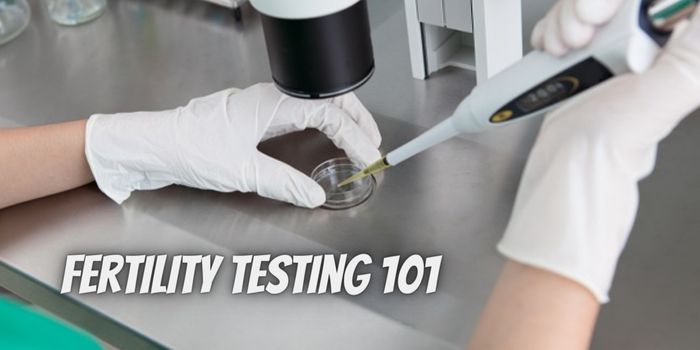Fertility testing is usually one of the first procedures for individuals and couples navigating the world of fertility. The tests offer insight into how fertile an individual or partners are as well as their likelihood to fertilize or conceive the natural way. Depending on the type of fertility test, you may need to be at a fertility center to test accurately. For fertility center you could look here for more information.
One of the commonest concerns regarding fertility testing is whether it should be done at home or in-office at a fertility center. The final decision will depend on individual preferences and how comfortable they are doing it in either environment.
Testing for fertility at home may be a great option for people who wish to be in their comfort zone, surrounded by their loved one or partner. In-office fertility testing is recommended for people undergoing medically mandated tests and procedures that cannot be completed at home or without professional supervision.
When Should I Have My Fertility Tested?
Fertility tests are an important part of the parenthood journey. Some people choose to see a reproductive endocrinologist out of curiosity, while others do so as part of their relationship criteria. Whatever the reason is, you can see a fertility professional at any stage of your life.
Undergoing fertility testing can help you better understand yourself, your body, and your reproductive ability. It can also help reduce the stress and pressure on new couples trying for a baby.
Generally, women aged 35 or older are advised to undergo fertility testing, especially if they’ve never conceived in the past and have been trying for a baby over a six-month period.
Types of Fertility Tests
There are different types of fertility tests, depending on who’s taking the test. Some common fertility test options to explore include;
Thyroid Function Test and Thyroid Antibodies
Who Can Take It? Females
When Can it be Taken? At any time during the cycle
What Does This Test Do? Thyroid function tests and thyroid antibodies assess the female’s thyroid function. The thyroid is important for metabolic activities in the mother and her developing embryo. Any problem with the thyroid gland or its function may cause problems with conception, implantation, or the ability to carry the fetus to term (miscarriage).
When tested, this can be a significant pointer towards past miscarriages or failed conceptions as well as future concerns about fertility and pregnancy.
Vaginal Swab and Culture
Who Can Take It? Females
When Can it be Taken? At any time during the cycle
What Does This Test Do? Vagina swab and culture helps fertility experts to rule out a wide range of infections and possibilities that may affect a couple’s ability to conceive. This test investigates for infections, vaginal pH, temperature, and other issues that may make the vagina and associated reproductive parts unconducive for fertilization and embryo implantation.
It also tests for problems that may affect the growing fetus, cause miscarriage, or complicate the pregnancy. This test not only looks for sexually transmitted infections that may have been concealed in the body, but it also aims to treat health and vagina health problems that could be transferred to the fetus during developmental stages.
Follicle Stimulating Hormone (FSH) Test
Who Can Take It? Females
When Can it be Taken? On the second day of the cycle
What Does This Test Do? The follicle-stimulating hormone (FSH) controls the release of estrogen hormone and encourages egg formation and maturity. Testing for the presence of this hormone and its quantity can help to determine a female’s ability to produce fertile eggs and ability to regulate eggs for fertilization and pregnancy.
A high FSH level often indicates a high possibility of ovarian failure or possible ovarian compromise. This high level can also affect the FSH and Luteinizing Hormone balance which is often a precursor of polycystic ovarian syndrome (PCOS) diagnosis.
Women with high levels of FSH may need to undergo additional tests to understand the cause of the hormonal spike as well as its relationship with their fertility and ability to conceive.
Semen Analysis
Who Can Take It? Males
When Can it be Taken? At any time
What Does This Test Do? Semen analysis focuses on analyzing a wide range of factors, including a male’s fertility, the number of sperm cells produced, sperm health, sperm motility, and whether or not the sperms are normal. Sperm analysis is recommended as part of fertility tests for In Vitro Fertilization or normal, natural conception. The test can also be drilled down to assess sperm chromatin structure, infectious diseases, and DNA fragmentation.
Each of the available fertility tests can be assessed by visiting professional and licensed fertility clinics.
